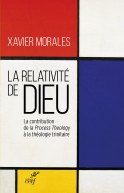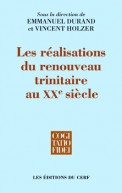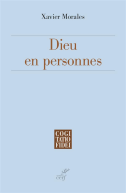Sources du renouveau de la théologie trinitaire au XXe siècle - CF 266
Collection Cogitatio Fidei - N° 266
320 pages - sept. 2008
38,00€
--
How should we think the mystery of the Trinity, and what should we adopt as our point of departure? To ‘think’ not in order to rationalize that mystery, but to confess, to live and to preach it? Those questions guided the first Trinitarian reflections, just as they guided the 20th century renewal. Trinity and creation, Trinity and grace, Trinity and salvation, and, more broadly, Trinity and history: those are the theological areas enlightened and structured by Trinitarian faith in view of identifying new syntheses and stronger bonds. The ensemble of contributions in this book, which assembles the fruit of research conducted by renowned specialists, focuses on the works and the conditions which allowed the multi-facetted renewal of the Trinitarian doctrine in the 20th century. The complexity of the subject demanded a clear and unlimited objective: the identification of sources and factors which participated, in a decisive way, to the reality of that renewal. Our favour, quite naturally, fell upon emblematic works - especially those of Karl Barth, Hans Urs von Balthasar, Karl Rahner and Wolfhart Pannenherg. Such a revival would not have possible without the mutation which affected philosophical reasoning, patristic theology and Medieval references in certain decades of the 20th century. We have sometimes used the term ‘renewal’ out of facility. Its pertinence must yet be put to the test. The research undertaken proposes, in concrete terms, to identify the sources, clarify the definitions and substantiate the validity of this new surge of Trinitarian theology. The result is a precise global vision which offers an appraisal of those future challenges we must assume.
- Dimensions : 135x215x20
- ISBN : 9782204086233
- Poids : 420 grammes
Avec la collaboration de : Bernard Pottier, Christoph Theobald, Emilio Brito, Emmanuel Durand, Gilles Emery, Jean-Louis Vieillard-Baron, Luigi Gioia, Michel Fédou, Olivier Riaudel, Piero Coda, Vincent Holzer







